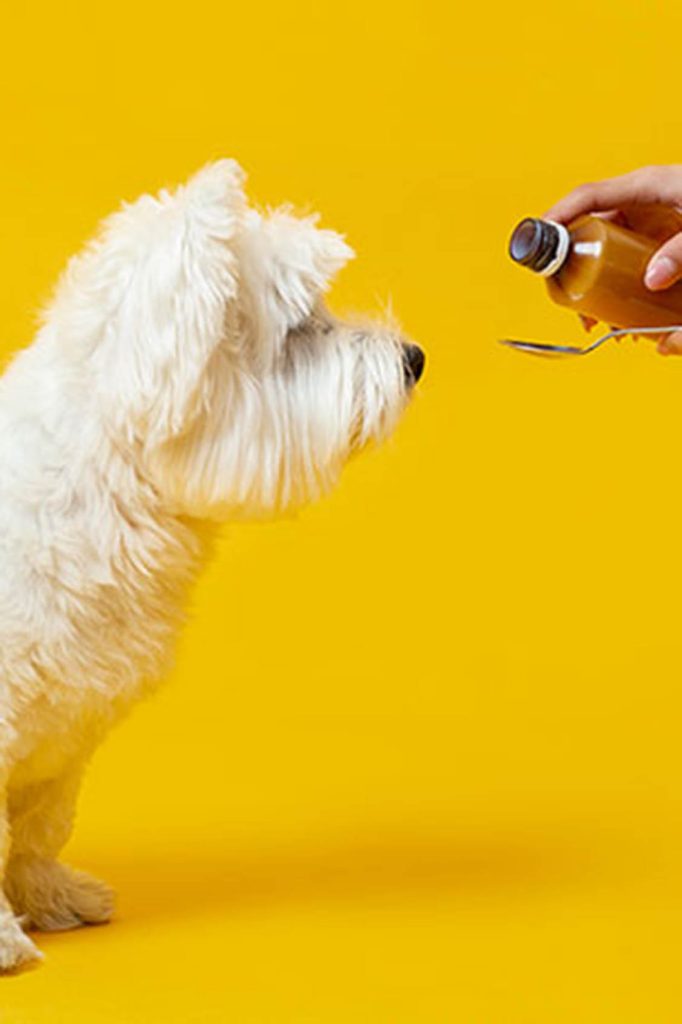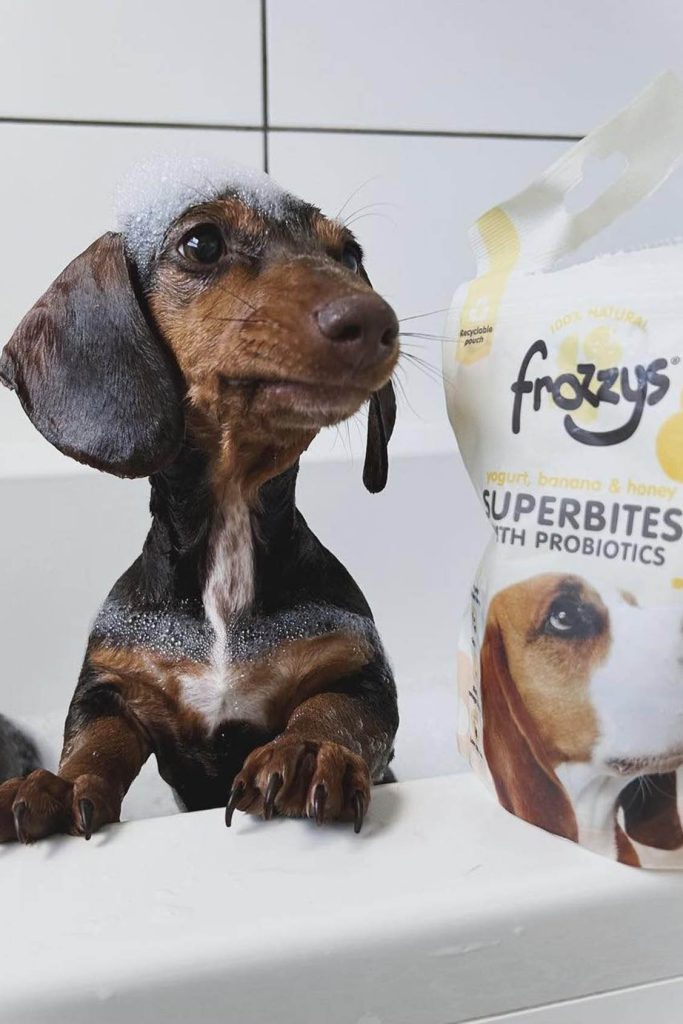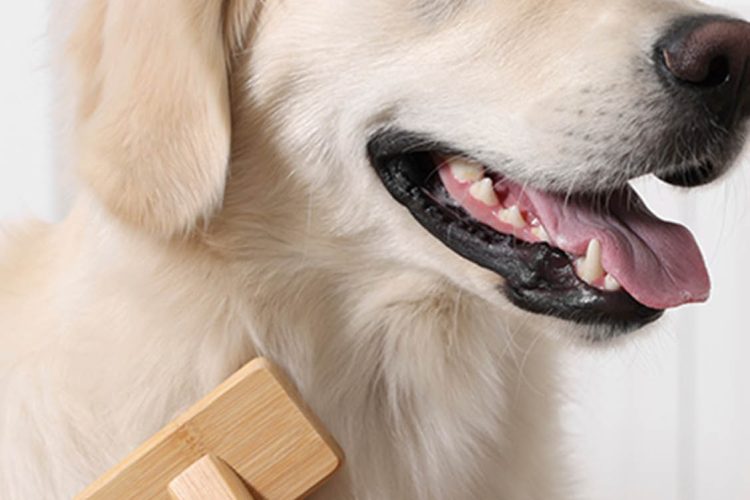1. Nutrition and Diet: The Foundation for Skin and Coat Health
Just like in humans, a dog’s skin and coat reflect its overall health, which is significantly influenced by diet. Nutrients like proteins, omega fatty acids, vitamins, and minerals are crucial for maintaining healthy skin and a shiny coat.
- High-Quality Protein: Proteins are the building blocks of skin and hair. Look for dog foods that have meat as the first ingredient (such as chicken, beef, lamb, or fish). Quality proteins support new cell growth, including hair and skin cells, which help your dog maintain a soft, thick coat.
- Omega-3 and Omega-6 Fatty Acids: Fatty acids are essential for reducing inflammation and promoting skin moisture. Foods with fish oil, flaxseed, or supplements such as salmon oil are rich in omega-3s. Omega-6 fatty acids, found in chicken fat and some plant oils, also help keep the coat shiny.
- Biotin and Zinc: Both biotin and zinc play an important role in supporting skin elasticity and preventing dryness. Look for biotin-rich dog foods or consider supplements, particularly if your dog has dandruff or dry skin.
- Antioxidants and Vitamins: Vitamins A, E, and C can help combat oxidative stress that affects skin health. Antioxidants in blueberries, carrots, and leafy greens can be beneficial, and some dog foods are fortified with these vitamins to support healthy skin.

2. Regular Grooming for Skin and Coat Health
Regular grooming goes beyond aesthetics. It’s essential for maintaining your dog’s overall skin health by reducing shedding, preventing matting, and allowing you to inspect for potential skin problems.
- Brushing: Brushing your dog several times a week helps remove loose fur, dirt, and dead skin cells. For long-haired breeds, use a slicker brush, while short-haired breeds benefit from a bristle or rubber brush. Regular brushing distributes natural oils along the hair shaft, which can keep the coat shiny and smooth.
- Bathing: Bathing too often can strip natural oils from your dog’s coat, leading to dryness. Generally, dogs only need a bath every 4-6 weeks, depending on their lifestyle and coat type. Use a dog-specific shampoo free from sulfates and artificial fragrances, as these can irritate the skin.
- Note: If your dog has a skin condition, consult your veterinarian for a medicated shampoo recommendation.
- Nail Trimming: Long nails can cause pain and discomfort, leading to licking and scratching, which may harm the skin. Trim nails regularly, especially if you hear them clicking on hard surfaces.
- Ear Cleaning: Cleaning your dog’s ears regularly can prevent infections. Use a gentle ear cleaner recommended by your vet and avoid inserting anything deep into the ear canal.
3. Flea and Parasite Prevention
Parasites, such as fleas, ticks, and mites, can wreak havoc on your dog’s skin and coat. They cause itching, redness, and sometimes hair loss, leading to secondary infections if left untreated.
- Use Flea and Tick Preventatives: There are several options available, including topical treatments, collars, and oral medications. Consult your vet to determine the best choice for your dog.
- Check Regularly for Parasites: After spending time outdoors, especially in wooded or grassy areas, check your dog’s coat for ticks and other pests.
- Clean Bedding and Environment: Regularly wash your dog’s bedding, blankets, and toys to help minimize the presence of fleas and other parasites in your home.
4. Hydration and Environmental Factors
A lack of hydration and environmental factors like humidity, temperature changes, and indoor heating can impact your dog’s skin health.
- Ensure Adequate Water Intake: Dehydration can lead to dry, flaky skin. Make sure your dog has access to fresh, clean water at all times. Some dogs may enjoy ice cubes or water fountains, which can encourage them to drink more.
- Humidify Indoor Air in Winter: Indoor heating during the winter months can dry out the air, which may result in your dog’s skin becoming dry and itchy. Using a humidifier can help maintain adequate moisture levels.
- Protection Against Sun and Cold: Dogs can get sunburned, particularly on areas with sparse fur, like the nose or tips of the ears. Consider dog-safe sunscreen or limiting sun exposure during peak hours. In winter, protect your dog’s paws and coat with dog boots or a jacket when necessary, especially for short-haired breeds.

5. Preventing Allergies and Irritants
Dogs can develop allergies to certain foods, environmental factors, or grooming products, leading to itching, hair loss, and skin rashes.
- Identify and Avoid Allergens: Common allergens for dogs include grains, chicken, dairy, pollen, and mold. If your dog is showing symptoms of allergies, consult your vet to determine the cause and potential treatment options. Switching to a hypoallergenic dog food can sometimes alleviate food allergies.
- Use Hypoallergenic Shampoos and Products: Choose grooming products specifically formulated for sensitive skin. Avoid artificial fragrances, dyes, and harsh chemicals, which can exacerbate skin problems.
- Maintain a Clean Living Environment: Dust mites and mold can trigger allergies in dogs. Vacuum regularly, use an air purifier, and ensure bedding is washed frequently.
6. Regular Vet Check-Ups
Regular veterinary visits are crucial for monitoring and maintaining your dog’s skin and coat health. Routine exams can help detect issues early, such as skin infections, hormonal imbalances, or underlying health problems like hypothyroidism, which can lead to a dull coat and dry skin.
- Annual Wellness Check: Most veterinarians recommend an annual check-up, where they can assess your dog’s skin and coat and perform routine blood work if needed.
- Addressing Skin Conditions Promptly: Conditions like hot spots, dermatitis, and mange require veterinary treatment. Ignoring symptoms can lead to more serious problems and discomfort for your pet.
7. Natural Supplements for a Healthy Coat
Adding certain natural supplements to your dog’s diet can support coat health, especially for dogs with dry or dull coats. Always consult your veterinarian before introducing new supplements to ensure they’re safe and appropriate for your dog.
- Fish Oil or Omega-3 Supplements: Fish oil supplements are excellent for skin health and can promote a glossy coat. Omega-3 fatty acids help reduce inflammation and support healthy skin cell production.
- Coconut Oil: Applying a small amount of coconut oil to your dog’s food can improve coat shine. It can also be applied topically to dry or itchy spots, but consult your vet to confirm it’s suitable for your pet’s skin.
- Biotin and Vitamin E: Biotin helps maintain healthy skin and nails, while vitamin E has antioxidant properties that protect against skin damage. Both can be found in supplement form or included in high-quality dog foods.
8. Managing Stress for Skin and Coat Health
Stress and anxiety can lead to behaviors that damage the skin, such as excessive licking, chewing, and scratching.
- Regular Exercise and Mental Stimulation: Keeping your dog mentally and physically stimulated can reduce stress-related behaviors. Long walks, playtime, and interactive toys are all helpful.
- Safe Space: Create a quiet, comfortable area for your dog to relax, especially if they’re prone to anxiety. Calming aids, such as pheromone diffusers or anxiety wraps, can also help some dogs.
- Routine: Dogs thrive on routine. Consistent feeding, walking, and bedtime schedules can help reduce stress and improve overall well-being.
By following these tips, you can keep your dog’s skin and coat healthy and vibrant year-round. A combination of proper nutrition, grooming, and preventive care will go a long way in ensuring your pet’s comfort and happiness.
